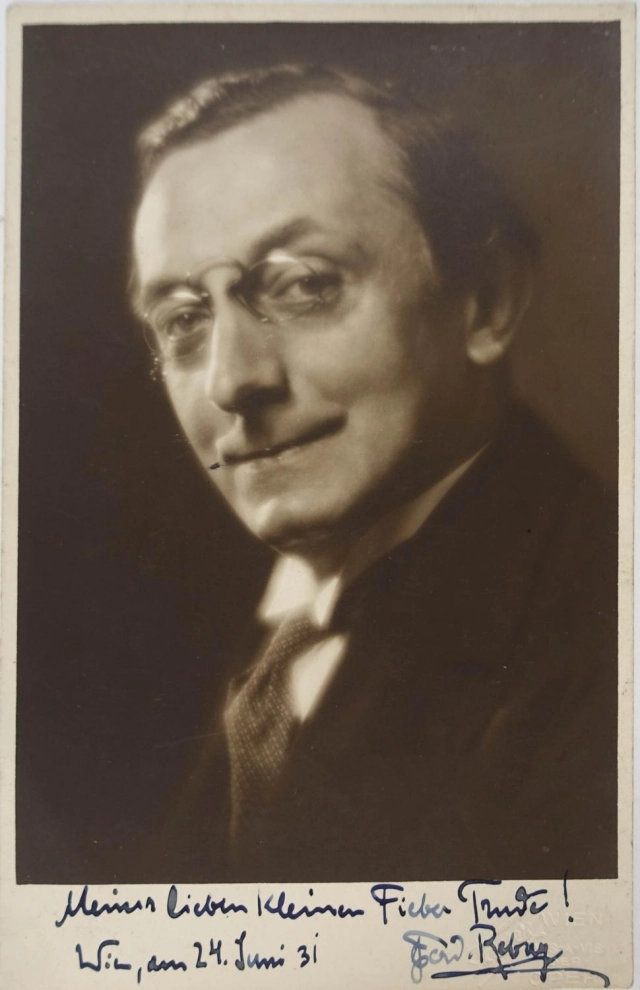
Ferdinand Rebay in 1931; courtesy of Heiligenkreuz Abbey
Ferdinand Rebay (1880-1953) was a Viennese composer, arranger, choirmaster, pianist, and piano teacher. He started to write sophisticated guitar music in 1924, which makes him a pioneer among the non-guitarist composers of his generation. What is unique about his circumstances, however, is that Rebay did not belong to circles of Llobet or Segovia, the leading guitarists at the time and representatives of the Spanish School. Instead, he collaborated with a group of enthusiastic Viennese guitarists who were for the first time gaining a professional education at the Vienna Academy for Music and Performing Arts, stepping out of the instrument’s former guitar-club boundaries and striving to integrate with their symphonic counterparts. Therefore, understanding Rebay’s importance for the guitar involves much more than just looking at his biography and output.
Rebay wrote almost 400 works for the guitar, comprising solo, chamber, and vocal music, from miniatures and short studies to multi-movement sonatas. Much of it was dedicated to his niece-guitarist, Gerta Hammerschmid (1906-1985), who also had a pivotal role as a guitar advisor and in the editing of Rebay’s music. While visiting this repertoire, I often engage with what I call a “posthumous collaboration” with the composer and Hammerschmid, an informed process that considers not only his idiom and compositional style but also the guitaristic Zeitgeist. Investigating the context surrounding Rebay and his Viennese guitarists helps me reassess the past and current states of the guitar.